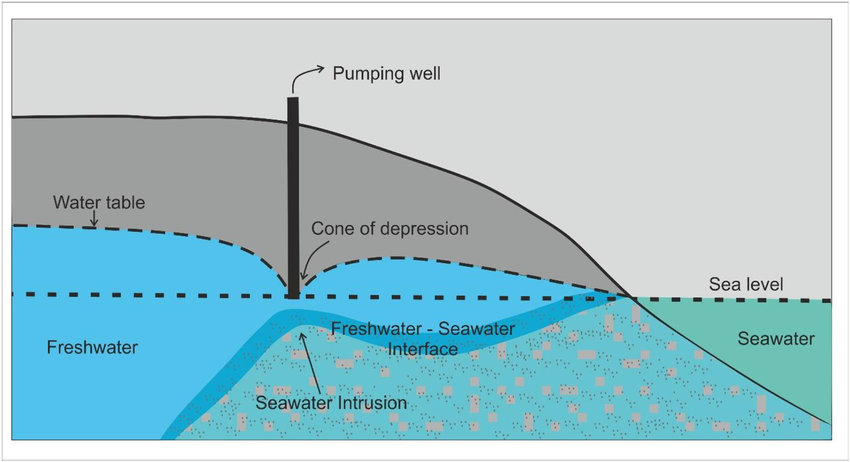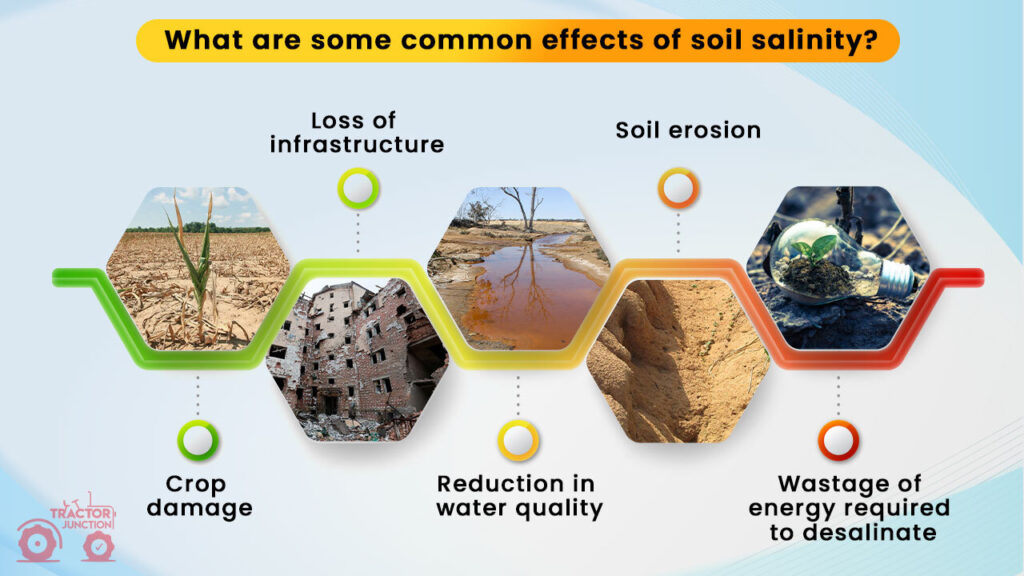Groundwater Salinity: Causes, Impacts, and Management
Groundwater is a critical source of fresh water for agriculture, industrial use, and drinking water. However, the quality of groundwater is not always pristine, with salinity being one of the most significant challenges in many parts of the world. Groundwater salinity refers to the presence of dissolved salts in groundwater. These salts can come from natural geological processes or human activities, leading to increased concentrations that can render water unsuitable for many uses.

Causes of Groundwater Salinity
1. Natural Processes
Groundwater salinity often originates from the geological composition of the Earth’s crust. Common natural causes include:
– Weathering of Rocks: As groundwater flows through sedimentary rocks like shale, sandstone, or limestone, it dissolves minerals such as halite (sodium chloride), gypsum (calcium sulfate), and other salts, increasing the salinity of the water.
– Marine Sediments: In coastal regions or areas that were previously covered by seawater, marine sediments containing high salt concentrations can lead to naturally saline groundwater.
– Evaporation: In arid and semi-arid regions, evaporation plays a significant role in increasing salinity. As water evaporates, salts are left behind, concentrating in the remaining water.
– Fossil Seawater: Ancient seawater trapped in aquifers can persist for millions of years, leading to naturally saline groundwater in certain regions.
2. Anthropogenic Causes
Human activities have significantly exacerbated groundwater salinity in many areas, particularly through:
– Irrigation Practices: Poorly managed irrigation can cause water to evaporate and leave salts in the soil, which leach into the groundwater over time.
– Over-extraction: Excessive groundwater pumping can lead to saltwater intrusion, particularly in coastal areas. As freshwater is extracted, salty ocean water can infiltrate the aquifer.
– Industrial Waste and Landfill Leachate: Inadequate disposal of industrial waste or poorly designed landfills can lead to the percolation of salty fluids into the groundwater.
– Agricultural Runoff: Fertilizers, pesticides, and salts used in agriculture often seep into groundwater systems, increasing salinity levels.
Impacts of Groundwater Salinity
- Agricultural Impacts
Saline groundwater can have devastating effects on agriculture. Plants are sensitive to high salt concentrations, which can inhibit their ability to absorb water. This leads to reduced crop yields, soil degradation, and can render agricultural lands infertile in the long term. The cost of managing salinity in agricultural zones can be substantial due to the need for more water or the use of salt-tolerant crops.
- Human Health
Drinking water with high levels of salinity poses health risks. Consuming water high in sodium can lead to hypertension, cardiovascular issues, and kidney problems. In extreme cases, saline groundwater is unfit for human consumption, forcing communities to rely on alternative and often expensive water sources.
- Environmental Impacts
High salinity levels can disrupt ecosystems, particularly in wetlands and rivers that are fed by saline groundwater. Freshwater species may be unable to survive in salty environments, leading to a loss of biodiversity. Additionally, increased salinity can harm soil structure, affecting vegetation and wildlife habitats.
- Economic Impacts
The economic costs of saline groundwater can be significant, particularly in regions that rely on groundwater for agriculture or industry. The need for desalinization technologies, changes in farming practices, and the potential decline in property values all represent economic burdens for affected areas.

Management of Groundwater Salinity
- Sustainable Water Use
Managing groundwater salinity begins with sustainable water use practices. This includes reducing the over-extraction of groundwater, especially in coastal areas, to prevent saltwater intrusion. Sustainable water practices can also involve the use of alternative water sources, such as rainwater harvesting or desalinated water.
- Improved Irrigation Techniques
In agriculture, better irrigation techniques can reduce salinity buildup. Drip irrigation, for instance, minimizes water wastage and reduces the amount of salt deposited in the soil. Additionally, using more salt-tolerant crops can help maintain agricultural productivity in areas with saline groundwater.
- Desalination
Desalination is one of the most direct ways to address groundwater salinity. Technologies such as reverse osmosis are commonly used to remove salts from water, making it suitable for drinking or irrigation. However, desalination is expensive and energy-intensive, making it a less viable solution for many regions.
- Recharging Aquifers
Artificially recharging aquifers with fresh water is another method of managing salinity. By injecting fresh water into saline aquifers, the salt concentration can be diluted, improving water quality. This approach is often used in conjunction with sustainable water extraction practices.
- Monitoring and Regulation
Effective management of groundwater salinity requires careful monitoring of water quality and salt concentrations. Governments and local authorities need to establish regulations that prevent over-extraction and pollution of groundwater sources. Regular testing of water quality can help detect salinity issues early, allowing for timely interventions.
Conclusion
Groundwater salinity is a complex issue influenced by both natural geological processes and human activities. Its impacts are far-reaching, affecting agriculture, human health, ecosystems, and economies. However, with sustainable water use practices, improved irrigation techniques, and technologies like desalination, the challenges posed by groundwater salinity can be effectively managed. Ongoing monitoring and regulation are also key to ensuring the long-term health of groundwater resources in saline-affected regions.

مساء الخير يا احمد باشا زادكم الله من فضله